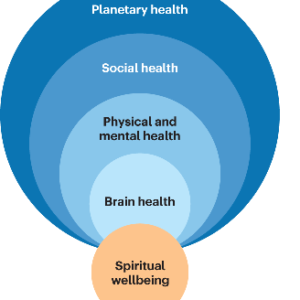Mens health promoting wellness and preventive care
Men’s Health and Wellness – Mens health and wellness encompass a crucial yet often overlooked dimension of healthcare that emphasizes preventive measures and lifestyle choices essential for enhancing quality of life. As men face distinct health risks—such as heart disease, diabetes, and certain cancers—comprehensive strategies aimed at promoting awareness and encouraging early intervention are vital. Preventive care plays a pivotal role in this context by facilitating regular health screenings and fostering healthier behavioral practices, which can curb the onset of chronic illnesses. The guidelines outlined in health documents, such as , underscore the importance of screenings and lifestyle modifications, advocating for balanced diets and physical activity, which are instrumental in achieving long-term wellness. By prioritizing mens health and wellness, society can empower men to take charge of their health, reduce healthcare disparities, and ultimately enhance their overall well-being.
II. Importance of Preventive Care in Men’s Health
Preventive care plays a crucial role in promoting men’s health, primarily by offering early detection and intervention for potential health issues. Engaging in preventive measures allows men to take charge of their health, mitigating risks associated with chronic diseases such as hypertension, which affects nearly 43% of African American men, emphasizing a significant health disparity within this demographic (Forthner et al.). Furthermore, a cultural reluctance to seek medical attention often leads to a delay in diagnosis and treatment, highlighting barriers to achieving a healthier lifestyle (McHugh B et al.). The implementation of wellness guidelines, as illustrated in , underscores the importance of regular health screenings and lifestyle modifications for men aged 19 and over. By prioritizing preventive care, men can enhance their longevity and overall quality of life, transforming both individual health outcomes and community health dynamics.
III. Common Health Issues Affecting Men
Men face a multitude of health issues that are often exacerbated by social norms and attitudes surrounding masculinity, which can hinder their engagement in preventive care and wellness activities. Chronic conditions such as heart disease, diabetes, and prostate cancer disproportionately affect men, prompting the need for targeted health interventions. Evidence suggests that societal perceptions contribute to a culture of denial regarding health problems, making it challenging for men to seek help or adopt healthy lifestyles (McHugh B et al.). Furthermore, effective management of these health concerns is vital, as the overall productivity and health of populations are closely linked to well-managed health services (BARBU M). Resources such as preventive care guidelines highlight essential health screenings, including blood pressure and cholesterol checks, which can be instrumental in early detection and treatment . Promoting awareness and encouraging men to prioritize their health will ultimately foster a culture of well-being and reduce the prevalence of these common health issues.
IV. Strategies for Promoting Wellness Among Men
Promoting wellness among men necessitates a multifaceted approach that addresses both physical and mental health challenges. To effectively engage men in preventive care, societal norms that stigmatize health-seeking behaviors must be reconsidered. Strategies such as community workshops can educate men about the importance of regular health screenings and lifestyle modifications, while also tackling denial around health issues that often leads to inaction (McHugh B et al.). Furthermore, the implementation of workplace wellness programs can foster an environment supportive of healthy practices, emphasizing that management’s role is critical in facilitating health behaviors, as the workforces overall health directly influences productivity and economic viability (BARBU M). By integrating educational materials, such as the wellness guidelines from organizations like BlueCross BlueShield, which promote preventive care and active living, men are more likely to embrace a holistic approach to their health . This proactive stance towards health is crucial for enhancing long-term well-being.
V. Conclusion
In conclusion, the promotion of mens health through wellness and preventive care is essential for fostering better health outcomes and enhancing the quality of life. Emphasizing preventive strategies such as regular health screenings and healthy lifestyle choices empowers men to take proactive steps in managing their health. The guidelines illustrated in , which detail various preventive measures like cholesterol checks and diabetes screenings, underscore the importance of comprehensive health awareness. By adopting these practices, men can mitigate the risk of chronic diseases and ensure timely interventions when necessary. Moreover, incorporating alternative therapies, such as acupuncture, as depicted in , can complement traditional healthcare approaches and address holistic health needs. Ultimately, a multi-faceted approach to mens health not only promotes individual wellness but also cultivates a culture of health consciousness that can positively influence communities at large.

References:
- Brigid McHugh, Judith Estrine, Rita Moran. “Promoting Men’s Health: Addressing Barriers to Healthy Lifestyle and Preventive Health Care”. International Longevity Center-USA, 2004, https://core.ac.uk/download/71356600.pdf
- Forthner, Lakenya. “THE IMPACT OF SOCIAL DETERMINANTS OF HEALTH ON HYPERTENSION”. The Aquila Digital Community, 2022, https://core.ac.uk/download/539106686.pdf
- Magdalena BARBU. “Managing medical services towards maximizing active healthy life for a competitive economy”. 2025, https://core.ac.uk/download/pdf/6330973.pdf




